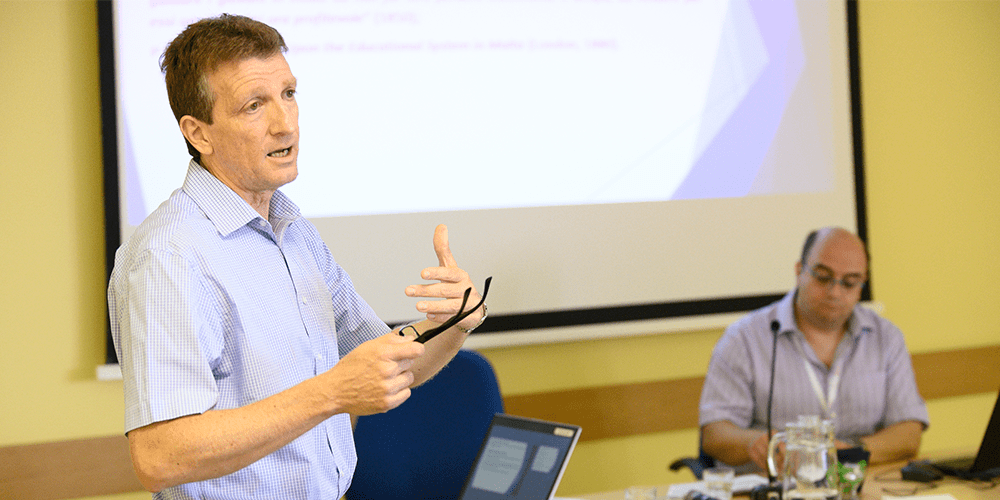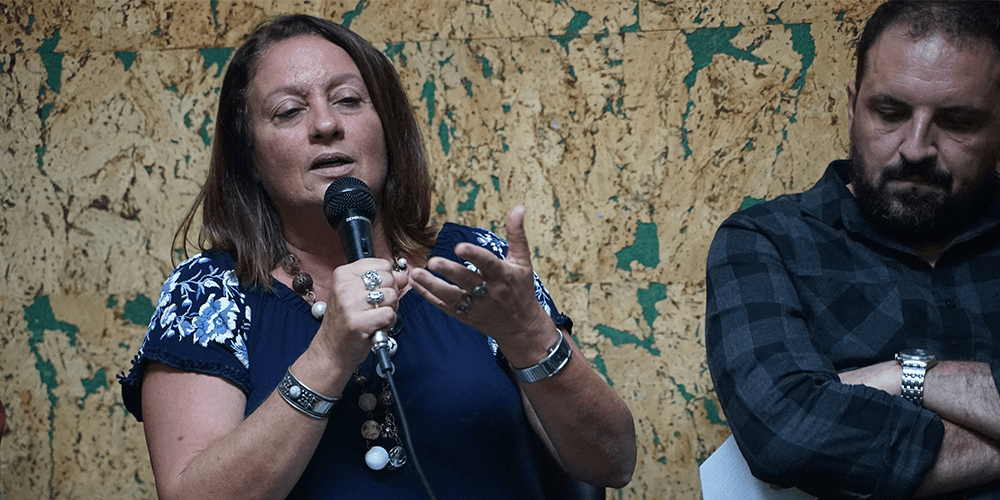With a teachers’ union slamming pervasive overtime and salary injustice, while some policymakers are contemplating recruitment of teachers from overseas, it’s about time we stop and reassess: what keeps teachers going? Lara Calleja asks experienced teachers about the sense of purpose in their work.
‘I want my students to learn primarily for the sake of learning the subject, and not just to pass the exam,’ confides secondary school physics teacher Rodney Buġeja, who has 19 years of experience. It is easy to see that both teachers interviewed talked passionately about a morally fulfilling career.
Asked about the main challenges of teaching, Year 3 primary school teacher Graziella Mercieca, serving for seven years in a state school, highlighted the ever-increasing demands. Demands were high when she started, and they have escalated considerably as the years went by. Malta’s very fast-paced changes in society have added new and complicated demands on teachers. What keeps them going?
More work, same pay?
New students in Malta are coming in who speak neither Maltese or English, a major challenge for teachers and students. ‘Although diversity is a great richness, it is clear that some of our classes are so heterogenous that, from a linguistic point of view, a teacher may have difficulties when they have to address learners,’ observes Prof. Sandro Caruana (University of Malta), member of the Council for the Teaching Profession.
Mercieca echoes his words when she elaborates that it is truly challenging for her as a teacher to both communicate as best she can whilst still delivering a quality lesson to all her Year 3 students. According to National Statistics Office data (2017), the number of non-Maltese students more than doubled between 2012/2013 and 2016/2017. Meanwhile, average class size ranged from 16.1 in form 1, private schools, to 25.7 in Year 5, Church primary schools. The World Bank file on Malta (2016) shows that the pupil-to-teacher ratio is 13, just like in Spain, but below those of Portugal, Cyprus, and Italy.
Also, in light of the statistics issued recently by the European Commission, Malta’s teaching salary was classified as below average when compared with other European countries; ranking us just slightly lower than Italians’ teaching wages. With a starting salary of just €22,603 per year, teachers are expected to execute a wide spectrum of duties and skills. ‘Undoubtedly, there is a large discrepancy in so far as the justification between the salary received and the amount of work, time, and dedication needed to be a teacher. Not to mention the teachers’ personal money spent on resources to be used in the classroom,’ says Buġeja.

Teachers ‘have to deal with endless frustration caused by uncooperative parents, limited resources, and lack of administrative backup,’ mentioned a MaltaToday editorial on World Teachers’ Day. Caruana further elaborates that, ‘although teachers’ salaries are frequently mentioned, and although I maintain that they should be higher both at entry-level and, especially, in relation to incentives for career progression, many teachers today feel that the profession has become more demanding because of the amount of administrative work it involves.’ He stresses that ‘such matters and others related to the lack of respect towards the profession are of serious concern, and may actually be more urgent to address than salaries, although improving these is also highly desirable.’
Recently, the government took a step forward in changing the qualification process to become a teacher. Aspiring teachers now have to take a compulsory Master’s in Teaching and Learning (MTL) after they have obtained their Bachelor’s degree. Veteran teacher Buġeja believes that this was the right step towards improving the standard of education, but both he and Mercieca agree that the current wage is poorly reflective of a Master’s degree.
As a reaction to the EU Commission’s recent statistics about Malta’s low ranking when it comes to teaching wages, responding to MaltaToday’s questions, Minister Evarist Bartolo admitted to the shortage of teachers, noting that the profession ‘has to compete with better wages offered by companies in the financial services sector and gaming.’
Lack of freedom
The imminent shortage of teachers is not just because of wage concerns. Another discouragement, as reported by the interviewees, is the fragmentation of the teaching profession, for secondary and primary school teachers alike. Mercieca and Buġeja state that teachers, especially in primary schools, cover a variety of subjects. Buġeja specifies that ‘teachers should be teaching more specific subjects, especially from Year 4 to 6, rather than generic’ ones.
Caruana says that this is negatively affecting students, ‘who feel bored at school because they find some syllabi stifling and outdated,’ and teachers, who are presented with little incentive to specialise in their subject. ‘Regrettably, for a teacher to progress in their career they may have to abandon class teaching,’ he says, before reflecting that it is being addressed by the new Collective Agreement. Still, much more can be done.
Sociology lecturer Dr Angele Deguara (Junior College) says that there is a considerable gap on many levels between teaching post-secondary and teaching primary and secondary classes. For primary and secondary teachers, apart from the salaries, there are also challenges related to lack of resources, lack of teacher autonomy both inside and outside of the classroom, and lack of cooperation from parents, as well as challenging students.’

Secondary teacher Buġeja also points out that the approach in primary and secondary education lacks space to nurture critical thinking among students, even though there were some efforts to change this recently. The idea of ‘studying to pass the exam’ is still at the base of the current educational system, says Buġeja.
Asked as to what he thinks can change this approach, he suggests having smaller classrooms and restructuring the educational system’s teaching approach from traditional education to an inquiry-based-learning system. Rather than learning answers from textbooks by heart, inquiry-based-learning develops the child’s ability to pose questions and become more adept at problem-solving to face life and work challenges.
When Edutopia, a website focusing on innovation in teaching, asked teachers what moves them forward every day, its follower Teresa Martinho Marques shared her purpose, ‘I am addicted to the challenge of how to get students even more engaged in loving and learning.’ But will this commitment alone keep our teachers going day after stressful day?





Comments are closed for this article!